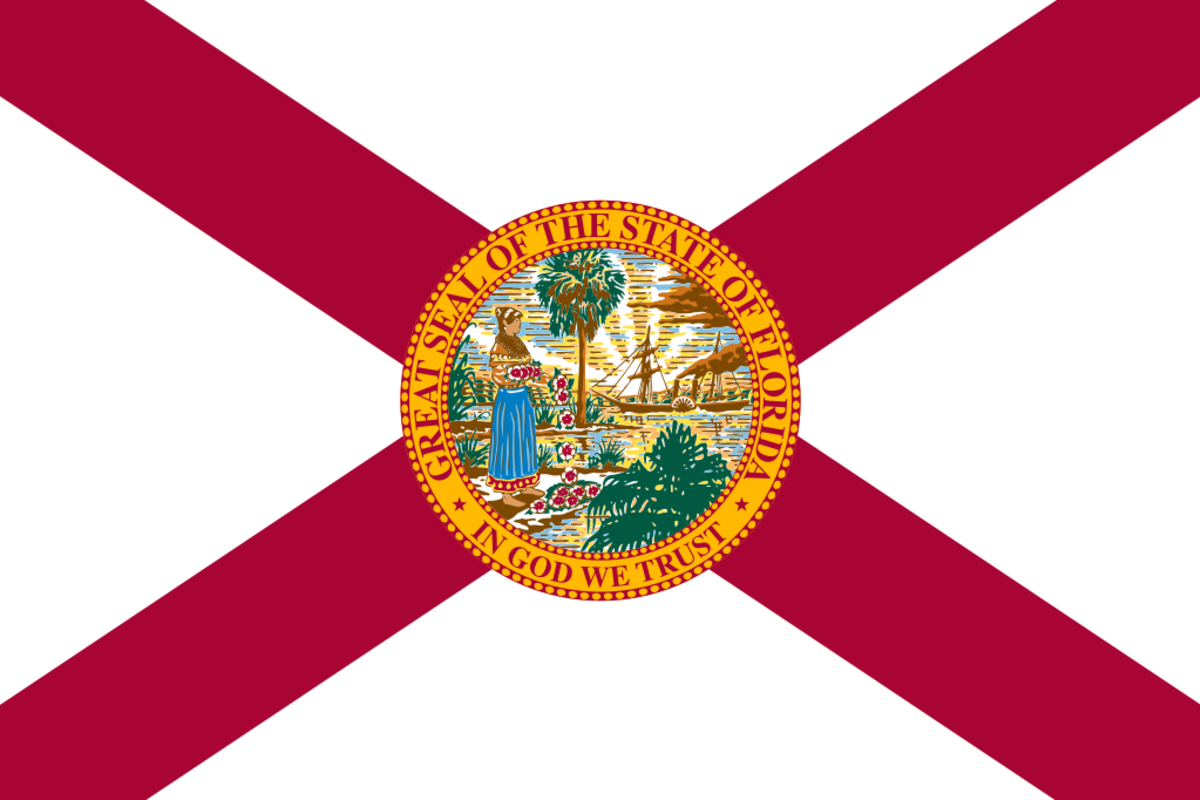Florida Tort Laws

The Sunshine State is no stranger to mass tort lawsuits, with plaintiffs filing thousands of lawsuits against the cruise industry, healthcare providers, and construction companies yearly, often involving premises liability or negligence allegations. These staggering statistics illustrate the prevalence and importance of mass tort lawsuits in Florida and the need for Floridians to understand the state's tort laws. This page will provide an overview of Florida's Tort Laws and offer a range of legal resources available to individuals involved in a mass tort lawsuit.
Florida Negligence Law
Negligence is a central concept in Florida tort law and is the basis for many personal injury lawsuits. Negligence occurs when someone fails to exercise reasonable care and, as a result, causes harm to another person. To prove negligence in Florida, a plaintiff must establish four elements:
Duty: The defendant owed a duty of care to the plaintiff. This duty can arise from several circumstances, such as the relationship between the parties or legal obligation.
Breach: The defendant breached their duty of care by failing to act as a reasonably prudent person would have under similar circumstances.
Causation: The defendant's breach of duty caused the plaintiff's injuries. In other words, the plaintiff would not have been harmed if the defendant had not acted negligently.
Damages: The plaintiff suffered actual injuries due to the defendant's negligence. Damages can include physical harm, emotional distress, and financial losses.
If a plaintiff can prove all four elements of negligence, they may be entitled to recover compensation for their injuries. However, it’s important to note that Florida follows a comparative negligence system, meaning that if a plaintiff is found to be partially at fault for their injuries, their damages award may be reduced by their percentage of fault.
Florida’s Doctrine of Strict Liability
Under Florida’s strict liability law, manufacturers, distributors, and sellers of products can be held responsible for harm caused by a defective product, regardless of whether they acted negligently. To prove strict liability in a product liability case, a plaintiff needs to demonstrate three things:
The product was defective: The plaintiff must show that it was flawed, making it unreasonably dangerous.
The defect caused the plaintiff's injuries: The plaintiff must demonstrate that the defect caused their injuries.
The plaintiff was using the product as intended: The plaintiff must show that they were using the product in the way it was designed to be used at the time of the injury.
It's worth noting that Florida's strict liability law does not require a plaintiff to prove negligence, so it can be an essential tool for injured individuals who may need more resources to prove negligence by the manufacturer, distributor, or seller.
How Intentional Torts Are Defined in Florida
Intentional torts are a type of tort in which the defendant intentionally causes harm to the plaintiff. To prove an intentional tort in Florida, a plaintiff must demonstrate that the defendant acted with intent. This means that the defendant knew that their conduct would harm the plaintiff or that they were substantially confident that harm would result.
Florida recognizes various intentional torts, including the following:
Assault: Assault occurs when someone intentionally causes the plaintiff to fear that they are about to suffer bodily harm. The threat of injury must be immediate, and the plaintiff must reasonably believe that the defendant can carry out the threat.
Battery: Battery occurs when someone intentionally touches the plaintiff in a harmful or offensive way without the plaintiff's consent.
False imprisonment: False imprisonment happens when someone intentionally restrains the plaintiff against their will without a lawful reason to do so.
Intentional infliction of emotional distress: This tort occurs when someone intentionally causes severe emotional distress to the plaintiff through extreme and outrageous conduct.
Trespass: Trespass transpires when someone intentionally enters the plaintiff's property without permission.
It's important to note that intentional torts can be challenging to prove, as they require a plaintiff to demonstrate that the defendant acted with a specific intent to cause harm. However, if a plaintiff is successful in establishing an intentional tort, they may be entitled to compensation for their injuries as well as punitive damages, which are meant to punish the defendant for their wrongful conduct.
Premises Liability Law in Florida
In Florida, property owners and occupiers must keep their premises reasonably safe for visitors and can be held liable if they fail to do so. However, there are different levels of responsibility depending on the visitor's status. There are three types of visitors recognized under Florida law:
Invitees: Invitees are invited onto the property for business purposes, such as store customers. Property owners and occupiers owe invitees the highest duty of care and must take reasonable steps to ensure their property is safe.
Licensees: Licensees are people invited onto the property for a social purpose, such as guests at a party. Property owners and occupiers owe licensees a duty to warn of any known dangers on the property.
Trespassers: Trespassers are people who enter the property without permission. Property owners and occupiers generally do not owe trespassers a duty of care unless the trespasser is a child, or the owner knows the trespasser is likely to enter the property.
To prove premises liability, a plaintiff must demonstrate the following:
The property owner or occupier had a duty to keep the property safe for visitors.
The property owner or occupier breached that duty by failing to take reasonable steps to ensure the visitor's safety.
The breach of duty caused the visitors’ injuries.
The visitor suffered damages as a result of their injuries.
Examples of hazards that could give rise to a premises liability claim in Florida include wet floors, uneven surfaces, inadequate lighting, and poor security measures. If a plaintiff can prove premises liability, they may be entitled to compensation for their injuries, including medical expenses, lost wages, and pain and suffering.
Product Liability Law in Florida
Product liability is a legal concept that holds manufacturers, distributors, and sellers responsible for injuries caused by defective products. In Florida, product liability claims can be based on several legal theories, including strict liability, negligence, and breach of warranty.
To establish a product liability claim in Florida, a plaintiff must prove that the product was defective and caused their injuries. Three types of defects can give rise to a product liability claim, including the following:
Design defects: A design defect is a flaw in the product’s design that makes it unreasonably dangerous. In Florida, a plaintiff can establish a design defect by showing that there was a safer alternative design that would have reduced the risk of harm without impairing the product’s usefulness.
Manufacturing defects: A manufacturing defect occurs when a product is unreasonably dangerous and not made according to its intended design. This can be established by showing that the product deviated from its intended design or specifications and that the deviation caused the plaintiff's injuries.
Warning defects: A warning defect materializes when a product does not contain adequate warnings or instructions for its safe use. A plaintiff can establish a warning defect by showing that the product did not include sufficient warnings or instructions, that the lack of warnings rendered the product unreasonably dangerous, or that the lack of warnings caused the plaintiff's injuries.
Under Florida law, a plaintiff can bring a product liability claim against any party in the distribution chain — including the manufacturer, distributor, and retailer. As mentioned earlier, Florida has adopted the doctrine of strict liability for product liability claims, which means that a plaintiff does not need to prove negligence on the defendant's part to establish liability. Instead, a defendant can establish strict liability by showing that the product was defective and that the defect caused their injuries.
Florida Business Liability Insurance Requirements
While Florida law does not require businesses to carry liability insurance, many choose to do so because the state is known for being particularly litigious. Florida courts have a history of awarding high compensation to plaintiffs in personal injury and tort lawsuits. Therefore, liability insurance can be an essential safeguard for businesses, protecting them against the financial risks of a lawsuit or other liability. While workers' compensation insurance is required for all companies in Florida, it only covers injuries or illnesses that are related to work and does not provide coverage for other types of liabilities. For this reason, many businesses in Florida choose to purchase liability insurance policies on their own accord, with coverage ranging from $500,000 to $1 million.
How Much Can Someone Sue For an Injury in Florida?
The amount that someone can sue for an injury in Florida will depend on several factors, including the severity of the injury, the extent of the damages suffered, and other factors specific to the case. There is no limit to the amount of damages that can be awarded in a personal injury case in Florida, except for medical malpractice cases.
When it comes to medical malpractice cases, there is a limit on the amount of non-economic damages that can be awarded. These damages include compensation for pain and suffering, emotional distress, and loss of enjoyment of life. If multiple claimants exist, the cap on non-economic damages for medical malpractice cases is $500,000 per claimant or $1 million.
In tort law cases, it's imperative to remember that every case is unique, and the damages that can be awarded will depend on the specific facts and circumstances of the case.
The Statute of Limitations in Florida
The statute of limitations for a mass tort in Florida will depend on the type of claim and the case circumstances. In general, the statute of limitations for a personal injury claim in Florida is four years from the date of the injury, while the statute of limitations for a wrongful death claim is two years from the date of the death.
However, the statute of limitations may differ in a mass tort case. In some cases, a court may consolidate individual claims into a single case, which can extend the statute of limitations for all plaintiffs. The statute of limitations for a mass tort case in Florida will depend on the case's particular circumstances, and plaintiffs need to consult with an attorney to determine the appropriate time frame for filing a claim.
Legal Resources for Injured Folks in Florida
If you’re an injured Floridian currently pursuing or already involved in a mass tort lawsuit, there are many legal resources available to provide you with the necessary support in understanding the legal process. From legal aid organizations to state agencies, these resources can provide valuable information, assistance, and support throughout your case.
The Legal Aid Society of the Orange County Bar Association
The Legal Aid Society of the Orange County Bar Association (LASOCBA) is a non-profit organization that provides free legal services to low-income individuals in Central Florida facing various legal issues, including personal injury claims. LASOCBA has a team of attorneys and staff dedicated to helping clients navigate the legal system and obtain the compensation they are entitled to. In addition, the organization offers various legal services, including legal advice and assistance with filling out legal forms and documents.
In addition to providing legal services, LASOCBA is committed to advocating for the rights of low-income individuals and promoting access to justice. The organization works to increase public awareness of legal issues affecting those who cannot afford legal representation and to provide outreach to the community.
Florida Office of the Attorney General
The Florida Office of the Attorney General is the state's top legal officer and chief legal adviser to the governor, state agencies, and other officials. The office also plays a vital role in protecting the rights of Florida consumers and enforcing laws related to consumer protection.
For plaintiffs involved in a mass tort, the Office of the Attorney General can be a helpful resource in many ways. For example, the office can investigate consumer fraud claims and unfair business practices and take legal action against companies or individuals who violate these laws. Additionally, the office can provide information and assistance to consumers affected by a mass tort, such as by connecting them with legal resources or providing information on their rights and options.
Florida Courts E-Filing Portal
On the Florida Courts E-Filing Portal website, individuals can access court forms and documents, search for court cases and filings, and view court rules and procedures. The website also provides information on court locations and hours and contact information for court personnel.
For individuals involved in a mass tort lawsuit, the website can be a valuable resource for accessing court documents and tracking the status of their case. The website allows users to search for court cases by case number or party name and to view case information, including case filings and scheduled court dates.
While this website can be helpful, it is essential to note that it may provide only some of the information and assistance needed to navigate a mass tort lawsuit. When in doubt, check with an experienced attorney to help you understand your rights and legal options.
Expertise.com StaffAuthor
Step into the world of Expertise.com, your go-to hub for credible insights. We don't take accuracy lightly around here. Our squad of expert reviewers, each a maestro in their field, has given the green light to every single article you'll find. From rigorous fact-checking to meticulous evaluations of service providers, we've got it all covered. So feel free to dive in and explore. The information you'll uncover has been stamped with the seal of approval by our top-notch experts.


![Mass Tort Lawsuit Timelines and Outcomes: What To Expect [2023] DUP IMAGE](https://images.ctfassets.net/k00sbju4hbzq/2sJ6vpBxbkuRa0riSN98dm/34b0353b8eff400e185a2ad51f27b1a1/Depositphotos_226254218_XL.jpg?fit=fill&w=384&q=75)

